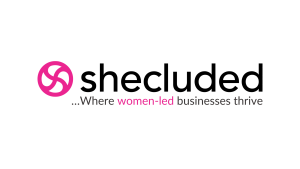
Women are an emerging market with lots of opportunities just waiting for investors to recognize. 50 years ago, the idea of a female entrepreneur successfully building and managing her own company would have seemed ambitious at best. With discrimination and gender inequality being factors working against them, women entrepreneurs buckled up and put in the work to sustain their businesses.
Going back through time, the advancement in ideologies surrounding the involvement and abilities of women in the economic market is clear. In developing countries like Nigeria, Malawi, etc. women-centered businesses are at the forefront, and are showing great investment prospects. Also, many tertiary degrees are being awarded to women, resulting in more highly qualified, well-educated, and ambitious women taking over the talent pool. They bring a new urgency to the issue of inclusion in both financial, career, and business growth opportunities.
Many women have started their own businesses in order to break free from social constraints and achieve financial independence – even outside of their 9 to 5 jobs. In the last 20 years, women entrepreneurs statistics have shown that the amount of female business owners in Africa has increased by 114%.
- More than 48% of private businesses in Ghana are women-owned
- Women own 38% of small businesses in Nigeria.
- Uganda and Malawi are home to over 30% of women-owned companies.
GUESS WHAT?
In 2018, there were only 12 companies with a female founder that made their way to global recognition, but at this very moment, there are over 357 of such companies globally!
Investment in emerging markets has proven to be the biggest economic trend of the century and what is the biggest emerging market of them all? I’ll give you a hint: The answer is not geographic but demographic. The answer is…women!
Yes! women are an emerging market with lots of opportunities just waiting for investors to recognize! By investing in women in emerging markets, companies are betting on a brighter future — for a workforce just waiting to blossom, for economies whose development depends on this new crop of talent, and, of course, for themselves.
Investing in women makes good business sense because diverse and inclusive workplaces are essential in meeting the needs of today’s diverse clients, communities, and other key stakeholders.
IT IS EVIDENCE BASED…
Studies have sought to highlight the rationale for the private sector to close gaps between men and women. The following are among the most notable findings:
- Companies with gender-diverse boards generate a higher return on equity than those without
- Companies with gender-diverse boards outperform those with no women in terms of share price performance during times of crisis or volatility
- High-performing companies are almost 50 percent more likely than low-performing companies to report that men and women have equal influence on strategy development
- Investors in companies with strong gender diversity strategies receive excess returns running at a compound annual growth rate (CAGR) of 3.5 percent. While these studies play an important role in validating the business case, they do not convey its true scope. Focusing on women in senior leadership and in developed markets obscures the potential gains from investing in women as employees at all levels. This includes women entrepreneurs, customers, and community members. An incomplete understanding of the full potential of the business case can in turn reduce investment in women from the private sector.
INNOVATIVE STEPS…
Innovative schemes have been put into place by globally renowned financial institutions to highlight the importance of investment in the women’s market. The 2X Challenge was founded by the Development Finance Institutions (DFIs) from the G7 as a call to action to shift more capital towards investments that empower women in developing countries. This gives access to entrepreneurship and leadership opportunities, quality jobs, products and services that enhance their economy.
IFC, a member of the World Bank Group, is the largest global development institution focused on the private sector in emerging markets. It carried out a series of research and compiled a report that brings together insights from across its global portfolio. This report features nine detailed case studies that demonstrate how IFC clients and partners have achieved results by integrating women as leaders, employees, entrepreneurs, and customers. It shows how a group of women entrepreneurs from India helped a solar lighting company expand sales by 30 percent. A bank in the Dominican Republic produced an internal rate of return of 35 percent by designing financial services for women customers, and how a coalition of more than 50 companies in Papua New Guinea helped address gender-based violence that had been adding 3 percent to 9 percent to payroll costs per year.
IN CONCLUSION;
Women entrepreneurs are part of the answer to opening sales to underserved markets, particularly women consumers. This advantage is particularly relevant when female customers are not well-connected with existing markets. Women entrepreneurs often have different strengths than men; the location of women agents, the sectors in which they operate, and their reinvestment habits unexpectedly impact their overall success rate.
“When women entrepreneurs thrive, the supply and value chains that they support are also reinforced. For companies with weak supplier bases, working with women to unlock latent capacity can lead to improved security and diversity.”
JOIN OUR MAILING LIST TODAY AND LEARN HOW TO HARNESS THIS MARKET !! https://www.subscribepage.com/tbgpsignup



